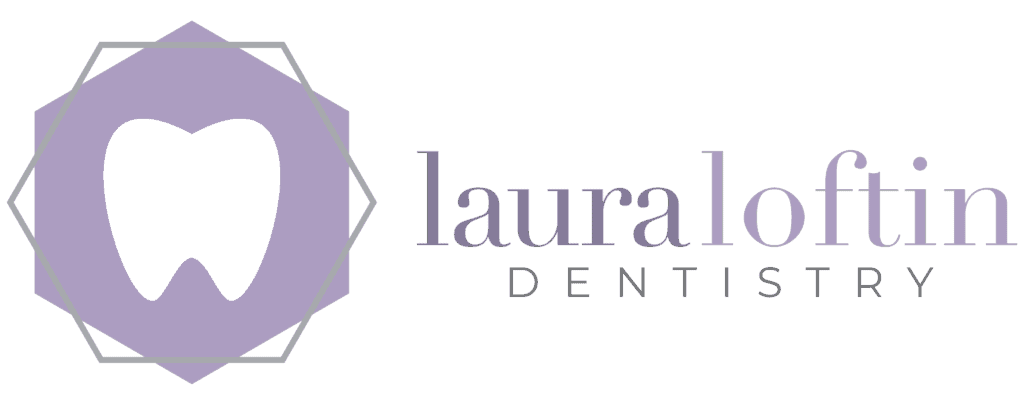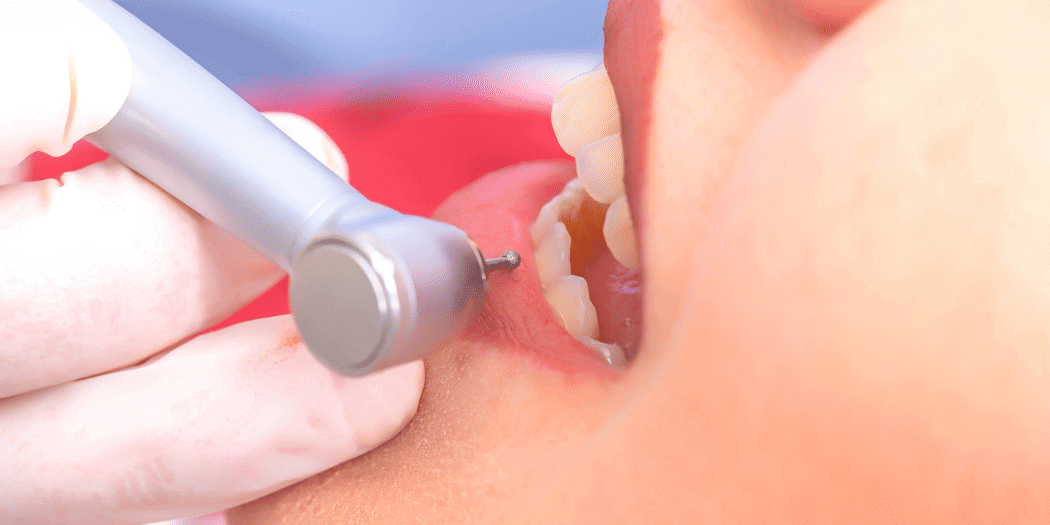You know the “drill,” most dentists recommend patients come in for regular dental cleanings twice a year. Those twice-yearly visits in the capable hands of an experienced dental hygienist really do help prevent tooth decay, tooth loss, gum disease, and the need for costly dental procedures. However, for some patients, traditional tooth cleaning doesn’t go quite far enough, and a deep teeth cleaning procedure may be needed.
When would I need to get a teeth deep cleaning treatment?
If your dentist diagnoses you with gum disease or periodontitis, your gums are bleeding and very inflamed or you have a build-up of calculus (that hard, crusty debris, also known as tartar) on your teeth—especially under your gums—she will probably recommend you get a deep teeth cleaning procedure.
How does my dentist know I need a deep dental cleaning?
She will ask you about and look for the symptoms of gum disease, including red, swollen, bleeding and tender gums, as well as loose or missing teeth, sensitive teeth, and bad breath. Either the dentist or dental hygienist will probe under the gums and look for deep pockets from the edge of the gums to where the tooth connects to bone.
The deep cleaning dentist or hygienist will also measure the pockets to determine whether a normal cleaning will suffice (1 to 3 mm is considered normal), or more advanced cleaning is needed. If the pocket measurements read 4 mm or higher, that typically indicates a patient is moving into the category of gum disease or periodontitis.
When gums are very inflamed and the measurement goes up to 6 or 8 mm or more, that’s when you’re at risk for teeth getting loose and falling out—even if those teeth are very healthy—because you don’t have anything holding the teeth in place due to the gums being so inflamed.
What is deep cleaning of teeth and what does it involve?
Depending on the patient’s needs, deep cleaning dentist Dr. Laura Loftin may recommend one or two additional cleanings after the initial cleaning. If the patient’s level of bacteria and calculus build-up under the gums is significant, the additional cleanings will be scheduled about a week apart. In either case, Dr. Loftin can apply a numbing agent to the gum area to keep the patient comfortable.
During the first cleaning, the hygienist will perform a debridement procedure, which is a superficial power wash that breaks up as much of the gunk on the teeth as possible. During the second and third (if needed) round of cleaning, the patient comes back for a deep gum cleaning, where the hygienist finds all of the little spots of calculus far under the gum tissue and scrapes the teeth clean.
What happens if I need a dental deep cleaning but put it off?
Along with tooth pain and inflamed, bleeding, sensitive gums that come with gum disease—not to mention bad breath—teeth can get loose and fall out. That’s why it’s so important to get regular cleanings, and when necessary, a deep tooth cleaning to ensure teeth and gums stay healthy.
Is deep tooth cleaning painful?
Dr. Laura Loftin, dentist Fort Worth, strongly believes that her patients should be made as comfortable as possible during and after any dental procedure, including a dentist deep cleaning.
Since the dentist or hygienist will be probing into tender, inflamed gum tissue and scraping sensitive teeth, some patients could experience discomfort during and after the deep cleaning procedure. However, Dr. Loftin is happy to apply a numbing agent prior to the procedure and will prescribe pain and/or anti-anxiety medication for patients who request it.
What’s the best way to avoid the need for deep cleaning teeth?
The main reasons people end up needing a dental deep cleaning include not visiting a dentist for regular cleanings (especially when visits have been more than six months apart) and not brushing and flossing teeth correctly. Consequently, the best way to avoid needing a deep dental cleaning is to get regular cleanings and brush and floss teeth twice a day.
Dr. Loftin recommends brushing and flossing twice daily because we all miss spots. In addition, calculus starts attaching to the tooth structure within 24 hours, so it’s important to stay on top of it. Keep in mind, brushing and flossing twice daily is important but all patients still need regular cleanings to maintain optimum dental health.
Again, we all miss areas of the teeth when brushing and flossing, and no toothpaste, toothbrush, floss, or other over-the-counter dental product can adequately clean and remove bacteria and calculus the way a dental hygienist can. In fact, a really good dental hygienist can get most patients from the “needing a deep dental cleaning stage” back to regular 6-month cleanings following a good deep clean.
Our gentle and thorough hygienists are here to save the day
And your teeth! We know people have a variety of reasons for avoiding regular tooth cleanings, whether it’s the cost, insurance, or a not-so-great experience with a previous dentist. Fort Worth dentist Dr. Laura Loftin understands your concerns.
Following in the footsteps of her father and grandfather, Dr. Loftin has built a dental practice that places a priority on patient comfort and puts patients in the driver seat when it comes to determining the best options for each patient’s dental health.
Whether you need a deep teeth cleaning, professional teeth whitening Fort Worth, or cosmetic dentistry Fort Worth TX, we’re here to help! Contact us to schedule your dental visit today.
Photo Source: Canva.com


